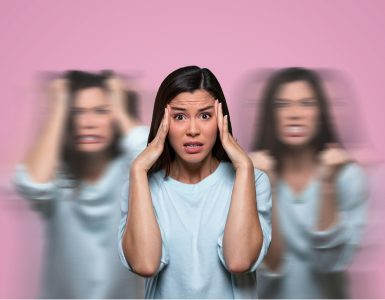Period problems
Issues around periods are common amongst women of ‘child bearing age’ – this means girls and women who are having their periods and haven’t had their menopause (when their periods stop) yet.
Period problems can vary in severity among women and girls, and they can be upsetting, painful, and irritating and cause a woman to suffer severely each month. Problems with your periods can also cause future fertility problems, so even if you’re not thinking about having children for another few years, if you think you have period problems now, it’s important to get them checked out by a doctor as early as possible.
Painful periods
Most females suffer with painful periods that cause cramping, back pain and headaches. But periods can become extremely panful and that’s when a visit to the doctor is necessary. Before you do so, it can be helpful to keep a dairy of your symptoms and period dates for a few months.
Over the counter painkillers such as ibuprofen and paracetamol can help to relieve painful periods, but if these don’t work, your GP can prescribe you something stronger. Also, the oral contraceptive pill can help to relieve pain (and regulate irregular periods) if you’re not thinking about having a family just yet.
Heavy periods
Heavy periods are also a fairly common problem. If you’re regularly soaking through your sanitary towels or tampons, despite changing them often then you could be suffering with heavy periods.
Your GP can talk you through your options and can prescribe a range of different medications including the contraceptive pill or tablets that help to stem the flow including tranexamic acid or mefenamic acid.
Irregular periods
A normal menstrual cycle lasts around 28 days, meaning that the majority of women have a period every 28 days, and it will last on average five days. Some women experience their period a few days more or less often than this, and this is also normal.
But some women experience an irregular cycle meaning that they never know when their period is due, or how long it will last.
Your GP can discuss your treatment options with you, including the oral contraceptive pill which can help to regulate your periods.
Stopped or missed periods
There are various reasons why you may miss a period or they stop altogether. These include being pregnant, suffering a lot of stress, being very overweight or obese, losing a lot of weight in a short period, suffering an eating disorder or reaching the menopause.
Speak to your GP if you’ve missed a period or they’ve stopped altogether.
Endometriosis
Endometriosis is a condition that causes the lining of the womb to grow outside of the womb elsewhere in the pelvic cavity. When a woman has period, this tissue also bleeds, but it cannot escape the body through the vagina, causing pain, bloating and inflammation. It can also cause pain when going to the toilet or when having sex, and can lead to extreme tiredness and fertility problems.
There are pain relieving medications and surgical options that can help. If you’re suffering painful periods, you may have endometriosis, so make an appointment to speak to your GP about your symptoms.
Painful ovulation
Ovulation, when the ovaries release an egg each month, usually occurs midway through a woman’s cycle. Sometimes, this can cause pain like that of period pain which can last a few minutes to a few days.
This can be relieved by taking painkillers, either from over the counter or from your GP. Taking a warm bath and holding a hot water bottle to your abdomen can also relieve ovulation (and period) pain.
















